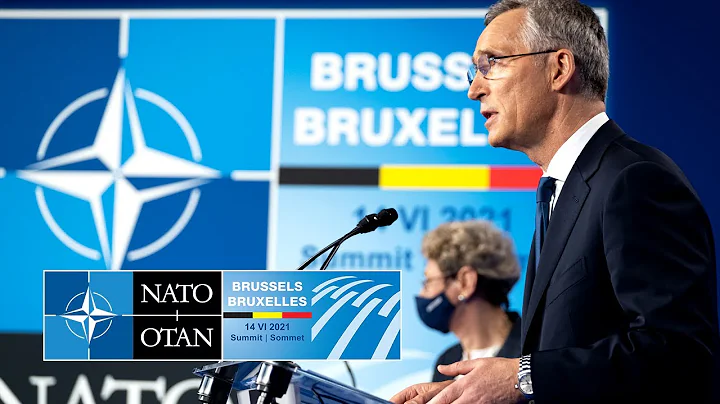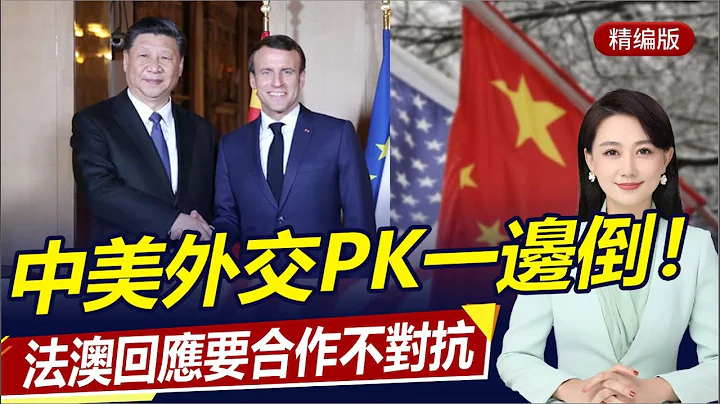According to the overview released by the White House and the G7 joint communique, G7 member states believe that China and Russia are the main common threats they face, and the word "China" appears 14 times in the communiqué.
The three-day " Group of Seven " (G7) summit came to an end on June 28, local time. The United States seemed to have "got what it wanted" and successfully attracted a group of allies to issue a joint communiqué focusing on China and Russia. . But ironically, the communique listed China's so-called "unfair economic practices", "forced labor" and other groundless charges, while at the same time urging China to persuade Russia to end the dispute.
According to the overview released by the White House and the G7 joint communiqué, G7 member states believe that China and Russia are the main common threats they face, and the word "China" appears 14 times in the communiqué. Reuters and other foreign media said that the G7 made "unprecedented severe criticism" of China in the communiqué.
First of all, the South China Sea issue has become the target of the G7 member states. The communiqué declared that the G7 reiterated that it maintains an "Indo-Pacific" region "based on tolerance and the rule of law, free and open" and strongly opposes any unilateral attempt to change the status quo and increase tensions by force or coercion. "We emphasize that China is ’s broad maritime claims in the South China Sea have no legal basis."
Immediately afterwards, the communique hyped up so-called human rights issues involving Taiwan, Hong Kong, and Xinjiang and Tibet.
The communiqué spent a considerable amount of space detailing China’s “economic crimes,” claiming that the G7 countries will work together to deal with the challenges posed by China’s “unfair economic practices” such as “opaque and market-distorting interference” and “economic coercion.” Including reducing "strategic dependence" on China, improving supply chain flexibility, and strengthening cooperation in key areas...
However, the communiqué changed the subject and abruptly turned the topic to cooperation with China. The G7 countries believe that it is necessary to cooperate with China on common global challenges such as climate change, loss of biodiversity, and international security, and "call on China to urge Russia" to immediately stop the "unreasonable, unprovoked and violent attacks" against Ukraine. "Illegal war" and unconditional withdrawal of troops from Ukraine.

The G7 summit issued a joint communique
Reuters reported that the G7 made "unprecedented severe criticism" of China's policies and human rights issues in the communique. The US "Capitol Hill" quoted a senior US official as saying that the conclusion of this communique was "unprecedented" in the history of the G7.
Hong Kong’s South China Morning Post believes that although many of the critical words in the communiqué are undoubtedly clichés, the United States has previously been unable to successfully persuade other G7 member states to use similar expressions in the communiqué to mention China-related issues. China was mentioned 14 times in this G7 communiqué, compared with only 4 times in the communiqué a year ago.


Screenshots of Reuters and "Capitol Hill" reports
Before the G7 summit, White House National Security Council coordinator Kirby had made it clear that the purpose of the G7 meeting and the NATO summit was very clear, that is, to support Ukraine and hold Russia accountable. It also focuses on other common challenges that will define the West in the coming decades, “including the challenge posed by China.” He also admitted that the upcoming new "strategic concept" of NATO is aimed at China.
Two days ago (26th), US President Biden announced a G7 infrastructure plan, which was widely regarded by the outside world as a counterweight to China's "One Belt, One Road" plan. China emphasizes that it always welcomes all initiatives to promote global infrastructure and opposes words and deeds that advance geopolitical calculations and slander the Belt and Road Initiative under the banner of infrastructure construction.
In his closing speech on the 28th, host German Chancellor Scholz also said that Western sanctions on Russia will only end when Putin admits that his plan in Ukraine will not succeed, "We hope that we Sanctions against Russia imposed by Russia and many other countries will not be violated." " Zeit " and other German media reported that Scholz was alluding to China.
However, just as the G7 countries are planning a joint communique against China, some European countries are opposed to joining the United States in "united resistance to China."
Dutch Prime Minister Mark Rutte recently stated that he opposes reconsidering trade relations with China due to China's Hong Kong and Xinjiang policies, and that countries that do not meet European standards should not be isolated. Belgian Prime Minister De Croo said that China is Europe's "important trading partner" and that EU countries should not treat China the same way they treat Russia, but should handle and consider relations with China from different dimensions.
It is worth mentioning that the United States has repeatedly tried to draw China into the situation when it "stoked" the Ukraine issue. As early as the beginning of the Russia-Ukraine conflict, US Deputy Secretary of State Nuland called on China to "use its influence on Russia to resolve the Ukrainian crisis"; Greenfield, the US ambassador to the United Nations, also claimed that he hoped that China would "encourage Russia to do the right thing" ".
In response, Zhang Jun, China’s Permanent Representative to the United Nations, responded that China’s message is very clear: resolve all disputes through diplomacy, stop hyping up tensions, and Russia’s legitimate concerns should also be addressed.
Source: Observer.com/Qiqian





![[SUB]布林肯糾纏王毅 拜登雪橇犬尹錫悅? 新聞大白話@tvbstalk 20230713 (字幕版) - DayDayNews](https://i.ytimg.com/vi/gP9Iv9JexwY/hq720.jpg?sqp=-oaymwEcCNAFEJQDSFXyq4qpAw4IARUAAIhCGAFwAcABBg==&rs=AOn4CLDTTquXVp3BgYrkonTaKP7q-koY6Q)















